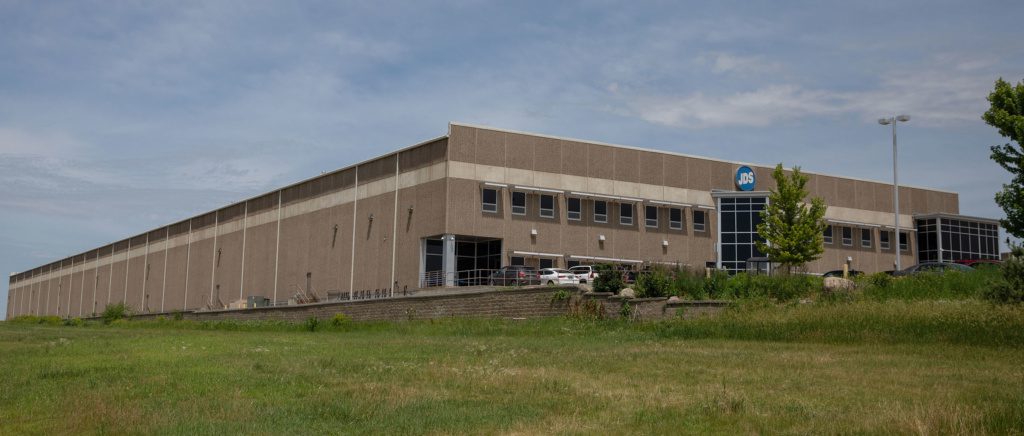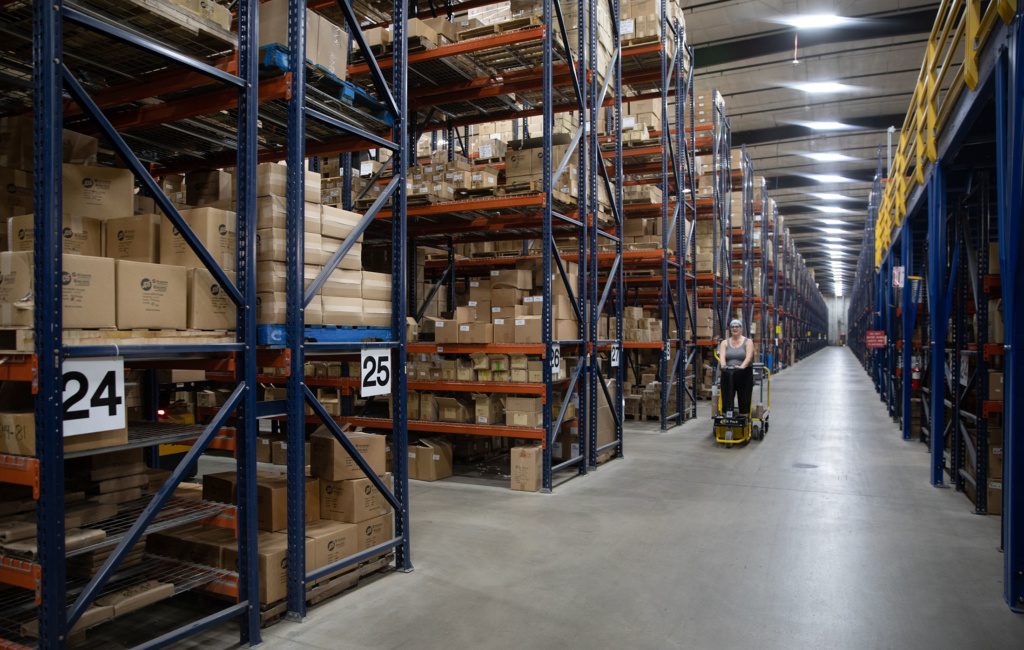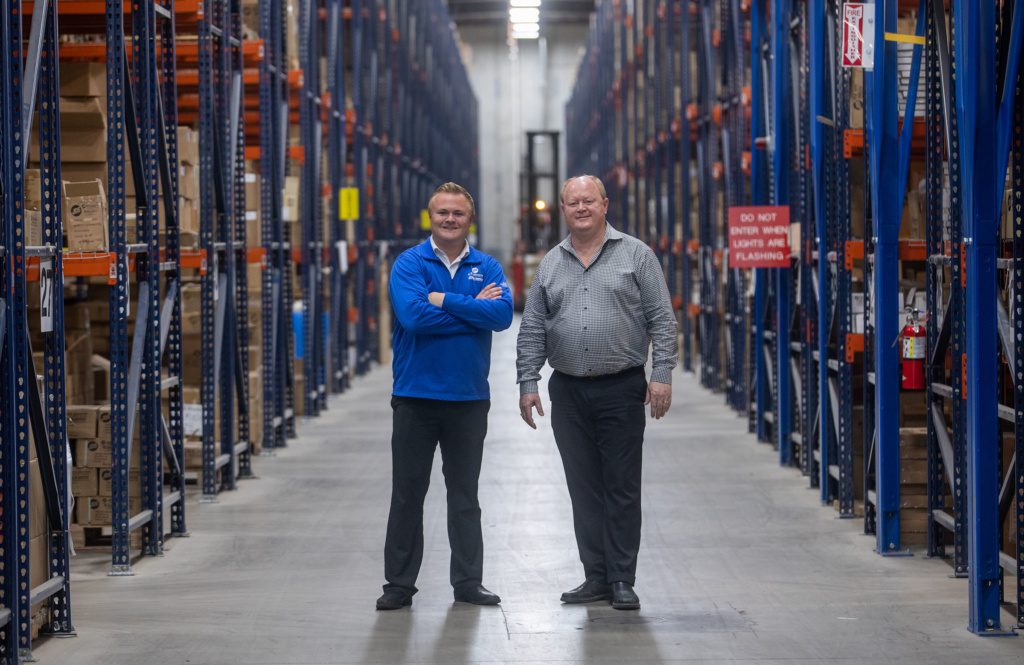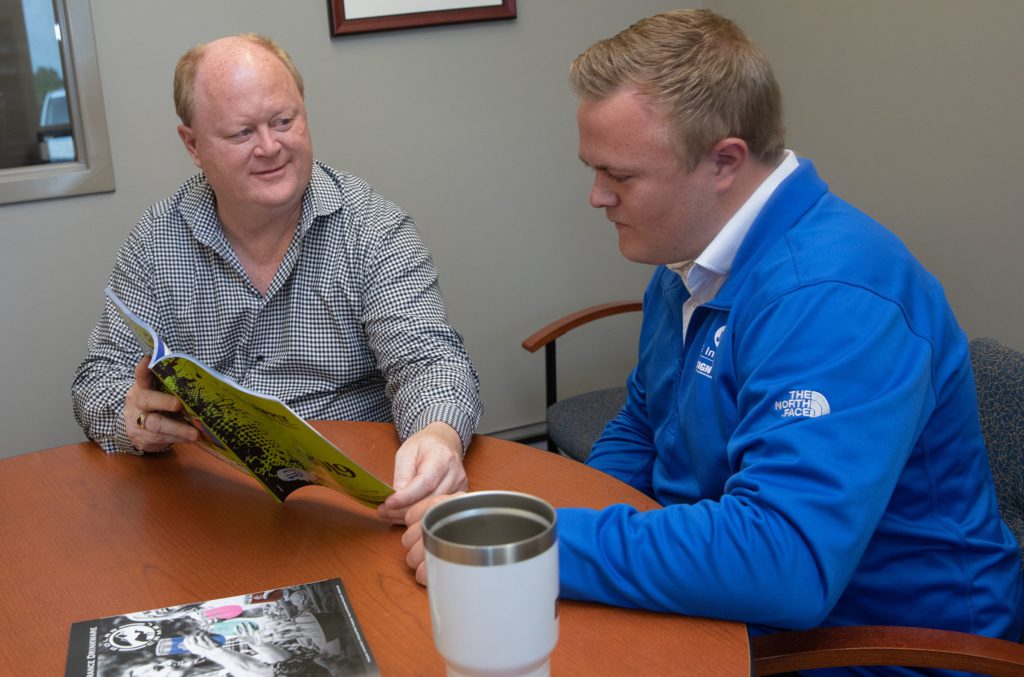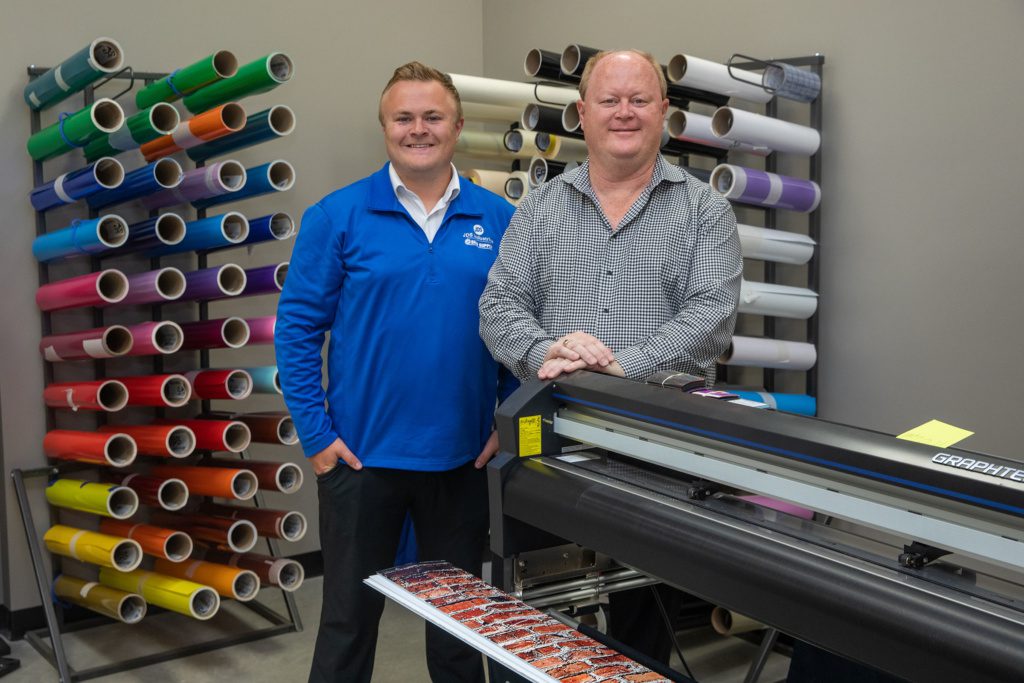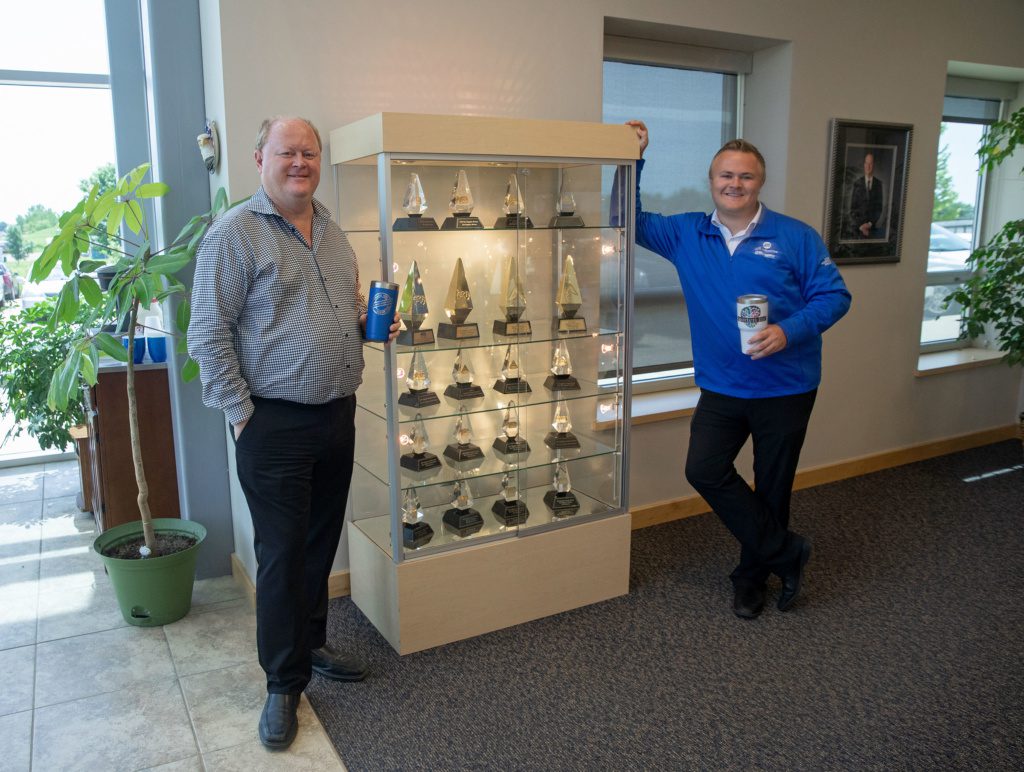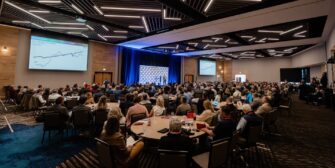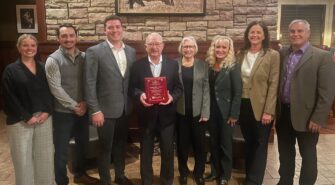3 Family Businesses Honored with Awards from Prairie Family Business Association
Recent News
Worldwide industry leader experiencing unprecedented growth as it enters third generation
Posted in PFBA, Success Stories | July 1, 2019
Worldwide industry leader experiencing unprecedented growth as it enters third generation
Whatever lessons in business might follow likely will be no more memorable than the summer assignment Nathan Sletten scored at his family business around the age of 14.
“I started in the warehouse, and a bunch of trophies had come in wrong from the factory,” he said.
“So I had to take them apart and put a new rod in. And I did it all summer long. It was about 10,000 trophies.”
A week later, his father – and employer – gave him the news.
“You did great,” Scott Sletten told his son. “But we’re discontinuing them.”
Almost a decade later, “we’re still trying to sell through them,” the elder Sletten laughed.
That miss on a product, though, is more the exception than the rule for JDS Industries, a Sioux Falls business that began as a single trophy shop and grew into the world’s largest wholesale supplier in the awards and personalization industry.
It began in 1972, when Scott was 7 years old and his parents, Darwin and Jane, bought JD’s House of Trophies, a retail store in Sioux Falls.
In a generational parallel, “the first memory I have is building trophies,” Scott said. “I was 10, and it was for the YMCA basketball tournament.”
Darwin kept his day job at an industrial distribution company while Jane managed the trophy store part time.
“My dad always wanted to be in business for himself, so he worked nights and weekends and part time to help it grow, and after five years or so, it got to the point where it would support him with a salary.”
In high school, Scott would continue working in the business during summers and weekends, and while he liked it, “I didn’t know this was going to be my forever job.”
After completing his bachelor’s degree in business at USD and his MBA, he and his father came to an agreement.
“He wanted me back in the company to help it grow because I was now trained in business management. He didn’t have the classic education. He learned through the school of hard knocks and from friends. He was very good with people, but I understood more of the business language – accounting and economics – so it was kind of divide and conquer as we grew the company.”
At age 25, Scott bought a portion of the company.
“When you’re young and own part of the company, it gives you a piece of the action, but there’s no guarantee what will happen,” he said.
“Did I know I would be 100 percent owner? Not necessarily, but 10 years later I bought out my mother’s share and then started buying out more of my dad’s, so it was a slow transition, and my father evaluated my capabilities, and I evaluated whether it was what I wanted to do.”
From JD’s to JDS
The evolution of JDS from a single store to a worldwide wholesaler has been nothing short of remarkable.
JDS Industries no longer has involvement with the retail trophy side of the business. Instead, the company has grown to more than 400 employees, including more than 200 in Sioux Falls, and 1.3 million square feet of warehouse space nationwide.
“We’re expanding so rapidly,” Scott said. “We’ll have six warehouses expanding in a 16-month window. It’s a lot of moving parts and pieces to manage, and as you expand, you need space and people. We’ll probably add 50 people nationwide this year.”
The growth is in places such as Chicago, Dallas, Detroit, Seattle and Sioux Falls, where the company has 270,000 square feet of warehouse space and enough land to more than double in size.
“It’s about controlled growth as much as anything,” Scott said. “I could grow faster, but that would mean doing things I’ve really not wanted to do. I have a target range for growth each year, and growing above it creates a lot of strains. I have opportunities come our way all the time that I turn down because they’re not right for one reason or another.”
JDS introduces about 1,000 new products annually, both those developed in-house and ideas brought to the company from customers and vendors.
One recent addition, a drink-ware line called Polar Camel, has grown so fast it now accounts for 10 percent of the company’s sales after three years.
“It’s a double-walled, vacuum-insulated product, so you can put a cold drink in it and it stays cold and personalize it with your brand,” Scott said. “It’s very popular, and we got into it for that reason, and now we’re generating our own patented designs. The other big growing area for the company is in gifts and premiums, things used by corporations. But what ties everything together is it’s all personalize-able and printable.”
His father, Darwin, retired about 10 years ago, and his son, Nathan, transitioned in full time a couple of years ago.
Nathan grew up in an entrepreneurial family. His mother, Ronna, owned a scrapbooking store while his father grew JDS.
“So the whole family is built around running businesses and taking care of employees, and I realized early on the demands on your time,” he said.
“As a teenager, I loved working in the warehouse. It’s fun and you connect with people,” he said. “I went from unloading trucks and running forklifts to helping manage crews.”
While he once envisioned a career as a pilot, his interest in JDS grew as he got older.
“I realized there’s so much more potential, and I realized I really liked business and you can be a pilot on the side,” he said.
When he first came into JDS full time, Nathan spent time in a variety of areas.
“He’s got to discover who he is as a person and what he wants to do in the future and where his passions are,” Scott said.
“The biggest thing for him is exposure to different aspects of the company. So he’s worked with a lot of customers at trade shows, taken calls, he’s involved internally and spent time in accounting and purchasing. So he understands the back end from his time in the warehouse and the front end from his time in the office and with customers.”
So far, Nathan has gravitated toward a new endeavor for the company – JDS Sign Supply, a division formed two years ago focusing on wholesale sign supplies and tools.
“It was a unique opportunity for us because it was new and we weren’t experts, so it allowed him to start at a level playing field with the rest of us, and he put a lot of time and attention into it and learning what he can about what makes that industry tick,” Scott said. “Long-term, it has enormous potential. It’s like being entrepreneurial but with the support of our whole organization.”
For Nathan, it has been an ideal growth opportunity.
“I’m at the stage now of transitioning into a larger role for that part of the company, and I’m really excited about it,” he said.
In terms of how father and son could transition, Scott, who is 54, takes a cue from his own experience.
“It’s very similar in that it’s a slow, gradual thing,” he said. “He’s 23, and there’s just too much in life that happens. So it’s hard to think about these things, and transitioning ownership takes time as well. You want to be careful you don’t start down a road that becomes the wrong road.”
Looking back at the road his company has traveled so far, the CEO offers valuable insight on how JDS achieved its worldwide marketing standing.
“It’s funny because when you’re in it and around it, you don’t think about it day to day. But you look back and think, ‘How did we get here?’ Back then, I didn’t see us reaching this level at all, but you keep working hard and finding new opportunities and trying to grow and do things smart,” he said.
“A lot of people say, ‘Is there one thing you did that caused you to be successful?’ But it’s not usually one thing that makes or breaks you. It’s the result of tons of small decisions and directions you take over time and how you adapt to change. How you manage through situations and adversity helps define you as a company.”
Learning from others
While he was still in college, Scott began connecting with peers in other family businesses. At that time, it was through an organization called the Sons of Bosses, which gradually evolved into today’s Prairie Family Business Association.
“We would have mixers and other social events, and it wasn’t nearly as formal as it is today, but it was a combination of a learning and social group, and as we got to know each other, we gave each other advice and toured each other’s businesses,” he said.
Years later, Nathan was introduced to the executive director of the association, who immediately said, “We’re going to get you involved.”
Ever since, he has been part of an affinity peer group, which he said has helped tremendously in navigating being in a family business.
“At first, it was a little daunting because everyone either owned part of their company or was close to it, and I thought, ‘What am I getting myself into?’ ” he said.
He’s now chair of the group and works with a facilitator to help organize it.
“We make sure everyone’s happy and we’re doing what everyone wants, and now they’re some of my really good friends,” he said.
“It’s super cool because I’ve never found anyone in the same boat as me who can relate to the things I talk about. And I went to the annual conference this year and will never miss another one. It was awesome.”
Scott also is a member of a peer group of his generation.
“We talk about the future, how our businesses are operating and about family,” he said.
Both are optimistic and open-minded when they consider their future as a family business.
“Transitioning a business with 20 employees is very different than a company that has 400 like we do, so it’s a different world to live in,” Scott said.
“Ten years from now, does it make sense to sell or do an ESOP? It’s possible. Do I transition to Nathan and another owner? Do I even want to slow down? Do we want to sell? It’s hard to predict what may happen. You never discount an offer you can’t refuse, so it’s hard to really plan far in advance. At my stage, it’s smarter to keep options open because there are so many things that could happen.”
They both agree, though, that the future for the company looks even bigger and brighter than the present.
“It’s unprojectable,” Nathan said. “There are so many possibilities.”
The Prairie Family Business Association is an outreach center of the USD Beacom School of Business.

